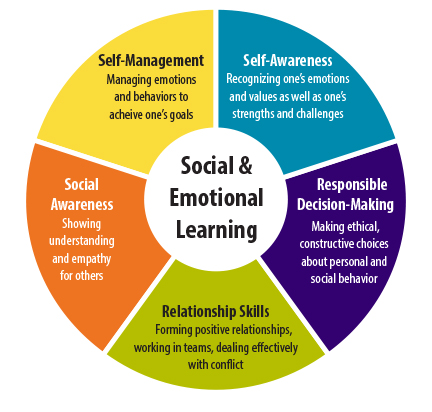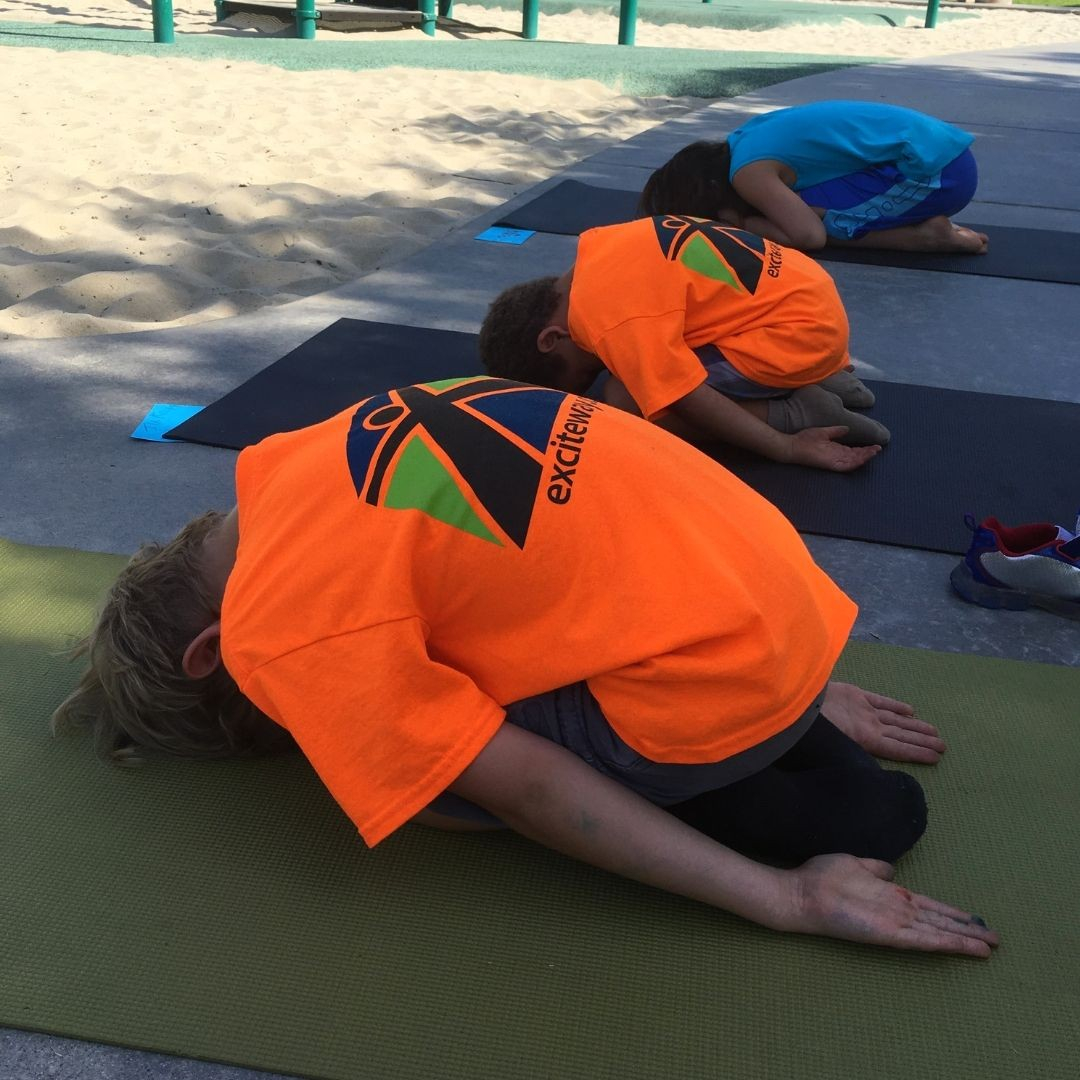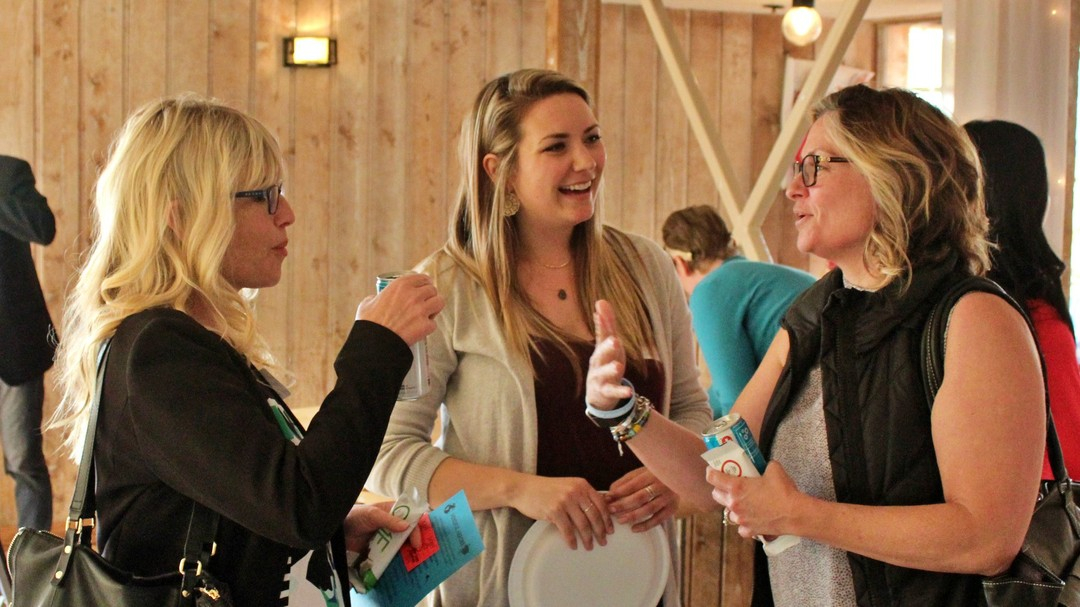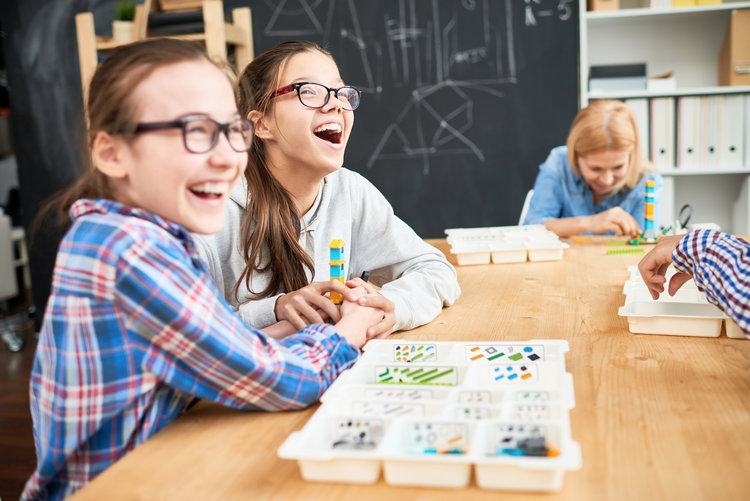Social Emotional Learning (SEL): What is it and why is it important?
Explained by two of San Diego’s education innovators Club Xcite and SPOT Kids Therapy.
Emotional Intelligence (EQ) is the name for the skill needed to be aware of, manage, and express emotion, and to manage interpersonal relationships with empathy and sound judgment, now widely recognized as critical to being a good student, citizen, and worker. This aspect of intelligence, exercised through social and emotional learning, is becoming widely recognized as a critical foundation for lifetime success. Famed psychologist Daniel Goleman, claims that these forms of intelligence are more useful predictors of success than general intelligence (IQ).
How do we get children to identify and manage emotions, think about their feelings or how they should act, and regulate behavior across all environments?
Jenny Kolesar Burke, a licensed Pediatric Occupational Therapist with 15 years of experience working with youth in schools and founder of SPOT Kids Therapy, Inc. in La Jolla, California, explains that “The first step is to understand where and how emotions are formed, and how they impact us as social beings. Emotional development is an intimate and intricate process that starts at birth, involving personal experience and biological functions. Emotions are rooted in the central nervous system and it is this which makes us humans, able to emote and socialize. It is important to learn why we have emotional responses, how it impacts social behavior, and what we can do to make change at any age or stage in life. In knowing the science behind social and emotional development, we can build emotional intelligence. This is the foundation for learning which can positively impact a person’s well-being and educational performance.”
Developing the skills to feel, process, and react to emotions is something most people are never explicitly taught; with the result that it can be a roadblock to success in other areas. Students that build skills relevant to these areas early on have shown that SEL serves as a foundation for lifelong social success, emotional well-being, and academic achievement. When SEL programs are implemented effectively in schools, these skills also help to reduce or prevent risky behaviors such as violence, bullying, drug use, and dropout (CASEL, 2013). It even makes teachers’ jobs easier by helping students to regulate emotional impulses and navigate peer relationships successfully with the result of reducing disruptive classroom behavior. Social and emotional skills also have been proven to decrease conduct problems and emotional distress, and improve grades and test scores.
HOW CAN STUDENTS IMPROVE THEIR SEL SKILLS?
Licensed Pediatric Occupational Therapist, Jenny Kolesar Burke, is passionate about sharing her knowledge and developmental expertise for SEL and how it impacts academic skills. Through SPOT Kids Therapy, Inc. and her work with Club Xcite, Jenny offers a scientific framework for SEL with materials and workshop support for teachers, parents and students that teach about the human developmental stages behind these skills. Ms. Kolesar Burke created a game to support Social Emotional Learning called the “Mindful Masters”. The game reinforces face-to-face interactive play to build emotional intelligence for children and adults. Jenny has teamed up with Club Xcite to fulfill the triad of service delivery that she believes is most powerful for mastering Social Emotional Learning:
Science behind SEL – education through workshops for teachers and parents
Program implementation of SEL curriculum at the school site
Generalization of skills through reinforcements in the classroom, as well as, the home setting, using various tools such as the Mindful Masters game
Club Xcite, an expert in innovative educational programming, focuses on integrating Social Emotional Learning into all aspects of their services to students. Founder, Stefan Hochfilzer explains: “When I started Club Xcite, my vision was to make a difference in the San Diego Community by providing unique and innovative academic, social and emotional opportunities to students and set new standards for educational support and care. By integrating SEL strategies into academic tutoring, Club Xcite has developed a holistic solution to support success at home and at school.”
At the heart of Club Xcite’s SEL programs is their passionate Program Director, Jocelyn Burke. “There is a saying that the two most important days in your life are the day you are born and the day you find out why. While tutoring in college at UCSD I realized that helping kids is what I was born to do. As I learned about how social and emotional learning can maximize a young person’s potential I realized there was a huge need to spread these ideas!” says Burke. “Every part of Club Xcite’s services now integrates these skill building strategies based on leading research and the experiences of our staff.”
CLUB XCITE’S SEL CURRICULUM
Effective SEL programming is based on the principle that the most effective learning is accomplished in the context of supportive relationships that make learning challenging, engaging, and meaningful, which is exactly what Club Xcite aims to do. Club Xcite is proud to introduce three SEL programs that are designed to bring our expertise in academic skill development to students.
Teaching and generalization of the curriculum can be done in the following settings:
San Diego’s students stand to make great gains. In a 2011 study by researchers at Loyola University and the University of Illinois at Chicago compared 213 social and emotional learning programs and demonstrated that participants significantly improved social and emotional skills, attitudes, behavior, and academic performance that reflected an 11-percentile-point gain in achievement. Inspired in part by the research of the Collaborative for Academic, Social and Emotional Learning (CASEL), Club Xcites’ programs all focus on teaching 5 “core competencies” including self-awareness, self-management, social awareness, relationship skills, and responsible decision-making strategies. Club Xcite teaches these skills by first engaging students’ attention and awareness, then teaching the “why” behind the skills and practicing in a natural and fun environment.
Despite her scientific approach to designing and measuring the new programs Club Xcite’s Jocelyn Burke insists that fun is the key ingredient in Club Xcites’ recipe for success. “Every time you walk through sand, your track becomes more prominent. The learning process works in a similar fashion: every time we repeat an action or behavior, it strengthens that pathway in the brain and makes it easier to access that skill when it is needed,” says Burke. “Our mission is to show every child that path by making learning intuitive and engaging. What makes Club Xcite different is kids will remember every lesson not because it is important, but because it is fun!”
To learn more about the benefits of social and emotional learning and how your school can participate in Club Xcite’s programs visit their website here or request information via phone at 858-779-9674.







